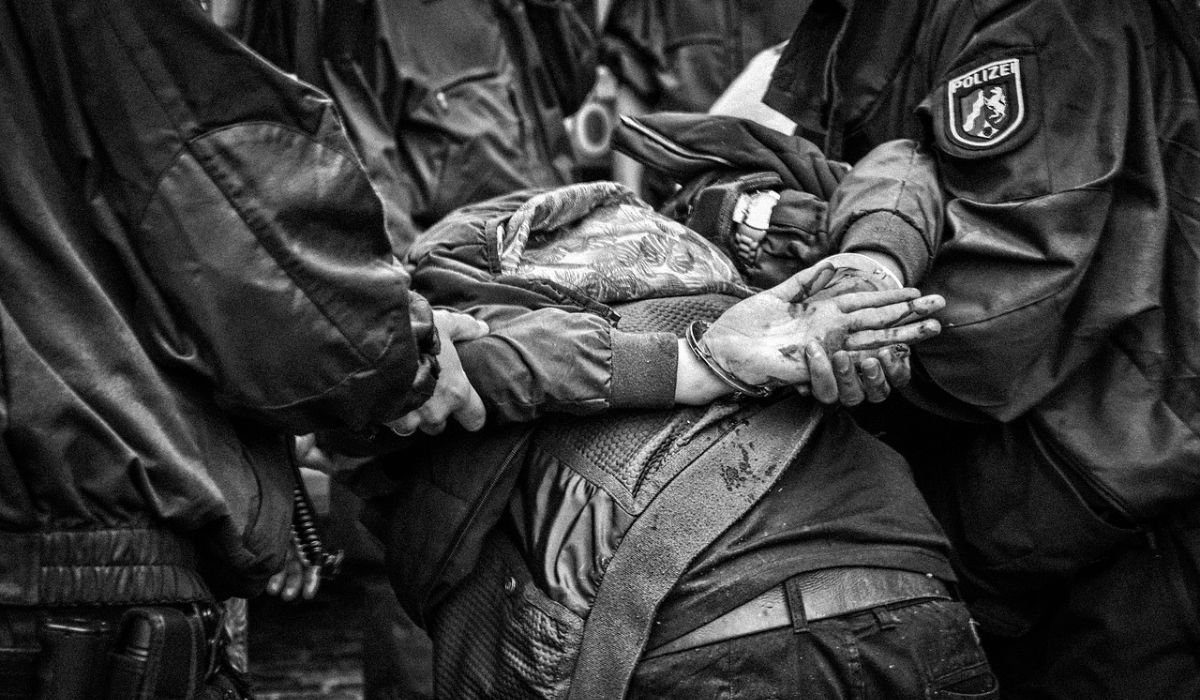Mugshots have long been a staple in the judicial system, serving as crucial tools for public identification and record-keeping. However, their role has expanded beyond the courtroom, spilling into the realm of online culture where they can quickly lead to reputational damage. This is especially true when mugshots are published online before legal proceedings are complete, as seen in the case of Dennis Eugene Durden in Fort Pierce, Florida. This article explores the details of his arrest, the public’s reaction to his mugshots, and the broader implications of digital mugshot dissemination.
Understanding the Role of Mugshots in the Judicial System
Mugshots serve two primary purposes in the judicial system. Firstly, they provide law enforcement with a visual record of individuals who have been arrested, helping to maintain an organized database that assists in future identification. Secondly, mugshots offer a level of transparency, allowing the public to access information about arrests and criminal activities.
However, the use of mugshots has evolved with the advent of the internet. Once confined to police records, these photos can now be accessed globally with just a few clicks. This shift has raised questions about privacy and the balance between public interest and personal rights.
The Case of Dennis Eugene Durden
Background of Dennis Eugene Durden
Dennis Eugene Durden, a resident of Fort Pierce, found himself in the spotlight after his arrest made headlines. Understanding the background and circumstances surrounding his case provides insight into the controversy that followed.
Arrest Details and Charges
The details of Dennis Eugene Durden’s arrest involve charges that drew significant public attention. These charges not only impacted Durden’s life but also fueled discussions about the legal system and the fairness of publicizing arrest information in real-time.
Public Reaction to the Mugshots
When Dennis Eugene Durden’s mugshots started circulating online, the public reaction was swift and varied. Some people saw the photos as a reflection of justice being served, while others questioned the ethics of broadcasting such images before a court verdict.
Impact on Reputation
Personal Repercussions for Dennis Eugene Durden
The release of Dennis Eugene Durden’s mugshots had profound effects on his personal and professional life. The stigma attached to such images often lingers, affecting relationships and career opportunities long after the legal issues have been resolved.
The Role of Social Media
Social media platforms played a crucial role in spreading Dennis Eugene Durden’s mugshots, amplifying their reach and impact. The viral nature of these platforms can lead to a trial by public opinion, often overshadowing the actual legal proceedings.
Public Perception and Presumption of Innocence
The presumption of innocence is a foundational principle of the legal system, yet the publication of mugshots can undermine this notion. Public perception can be heavily influenced by these images, potentially swaying opinions and affecting the fairness of trials.
Legal and Ethical Implications of Publishing Mugshots Online
Privacy Rights vs. Public Interest
The debate over privacy rights and public interest is central to the discussion about mugshots. While the public has a right to be informed about criminal activities within their community, individuals also have a right to privacy, especially if they are later found innocent.
Legal Precedents and Challenges
Several legal challenges have arisen concerning the dissemination of mugshots online. Court cases and legislation continue to shape how these images can be used, with varying results across different jurisdictions.
Ethical Considerations
Ethically, the publication of mugshots before a conviction raises questions about justice and fairness. The potential for harm is significant, and the need for responsible reporting and use of these images is evident.
Societal Issues Surrounding Mugshots in Digital Media
Influence of Digital Media
Digital media has transformed how we access and consume information. The rapid spread of mugshots is a testament to this change, highlighting the need for new standards and practices in digital journalism.
Potential Solutions and Reforms
To address the issues associated with online mugshots, several solutions have been proposed. These include stricter regulations on the publication of arrest records, enhanced privacy protections, and reforms aimed at ensuring more balanced media coverage.
The Future of Mugshots in the Digital Age
Looking forward, the future of mugshots in the digital age will likely involve a reevaluation of their role within the justice system. Balancing transparency and privacy will be key to ensuring fair and ethical use of these images.
You May Also Like: Strategic Tips to Bring Blorbo the Shrewd 25 Hobgoblin Hides
Conclusion
The case of Dennis Eugene Durden highlights the complexities surrounding the use of mugshots in the digital era. While these images serve important functions within the judicial system, their online dissemination poses significant challenges. Moving forward, it is crucial to promote responsible use of public records, ensuring that justice and privacy are both upheld.
FAQs
1. What are the legal rights concerning mugshots being published online?
Legal rights concerning mugshots vary by jurisdiction. Generally, mugshots are considered public records, but there are ongoing debates and lawsuits regarding privacy rights and the ethical implications of publishing these images online.
2. How can individuals protect their reputation if their mugshot is published?
Individuals can take several steps if their mugshot is published online, including seeking legal assistance to request removal, reaching out to websites hosting the images, and managing their online presence to highlight positive aspects of their identity.
3. Are there any laws that prevent the dissemination of mugshots online?
Some states in the U.S. have enacted laws that restrict the publication of mugshots online, particularly if the charges are dismissed or the individual is acquitted. However, laws vary significantly across regions, and not all areas offer legal recourse.
4. What impact do mugshots have on public perception of crime?
Mugshots can heavily influence public perception, often creating a bias toward assuming guilt. This can affect jury selection, trial outcomes, and general community attitudes toward individuals who have been arrested but not convicted.
5. How can media outlets report on arrests without compromising fairness?
Media outlets can adopt ethical guidelines that emphasize the presumption of innocence and avoid sensationalism. This includes providing context for arrests, using neutral language, and being mindful of the long-term impacts their reporting may have on individuals involved.











